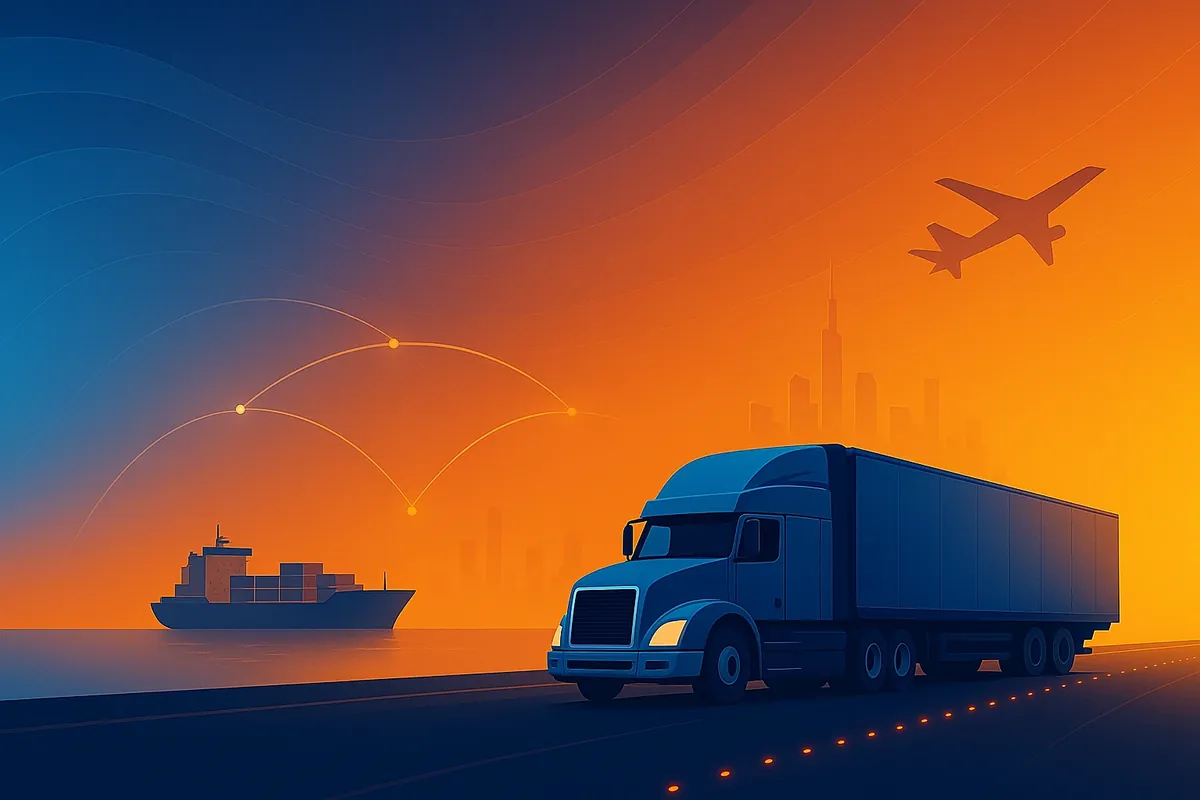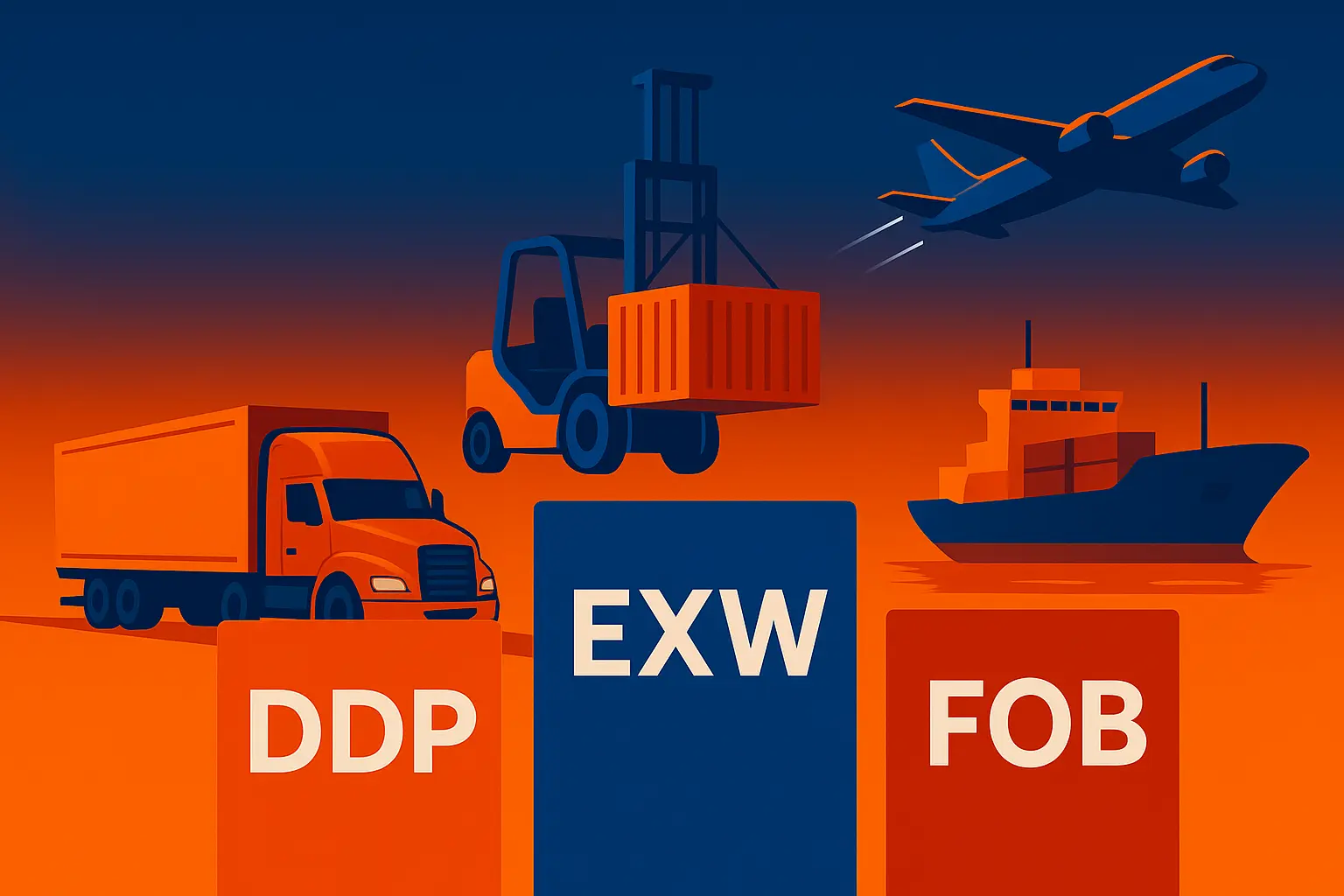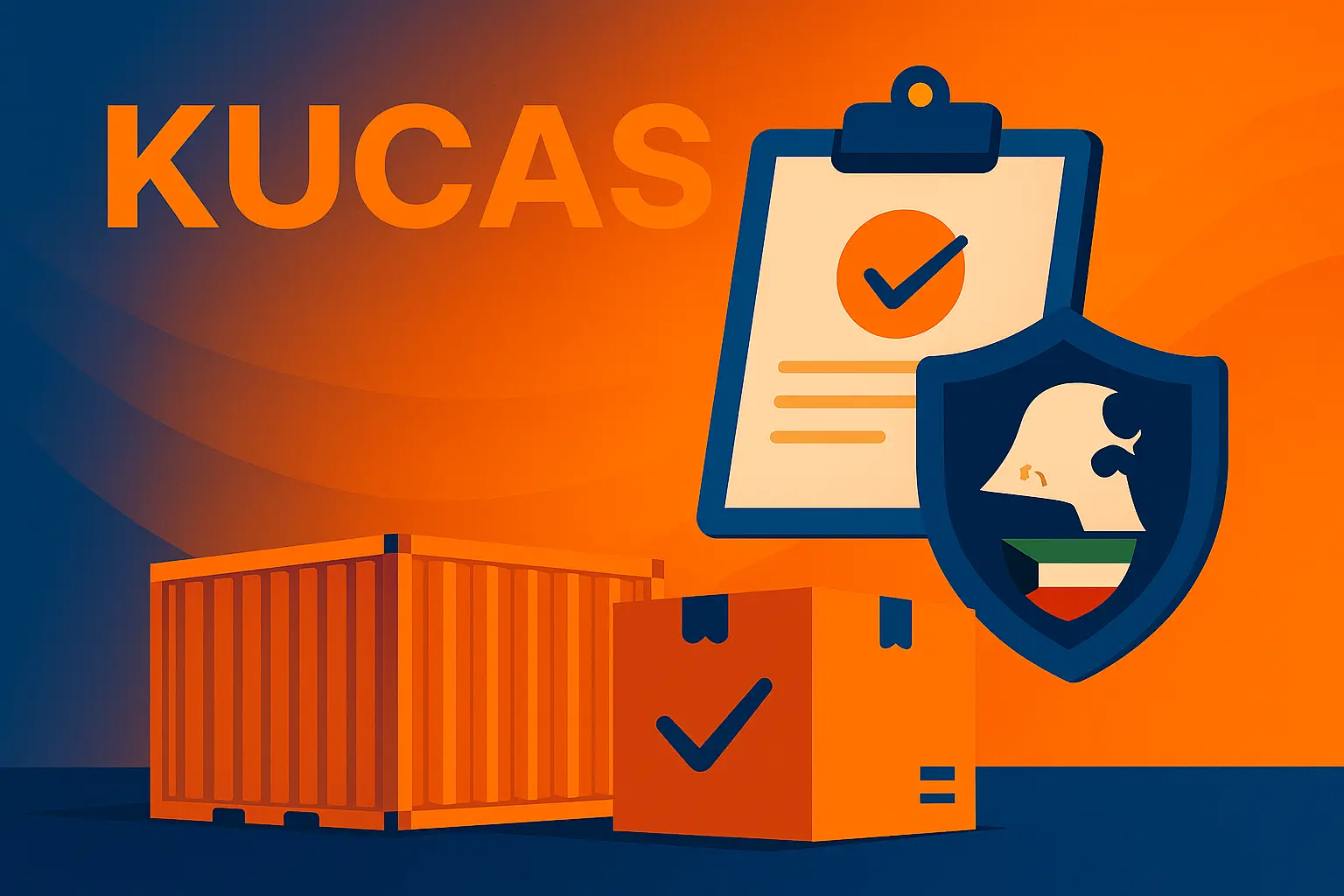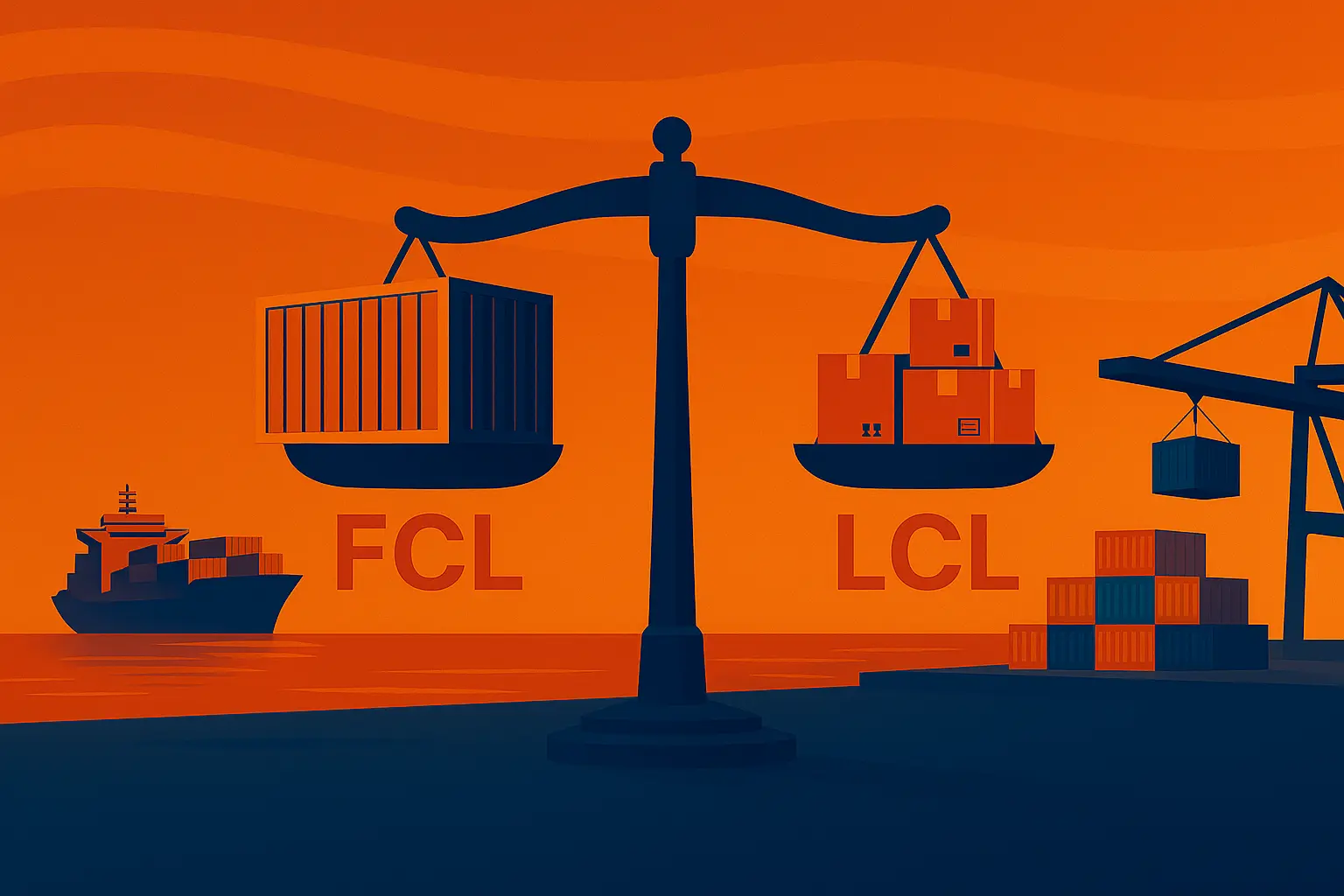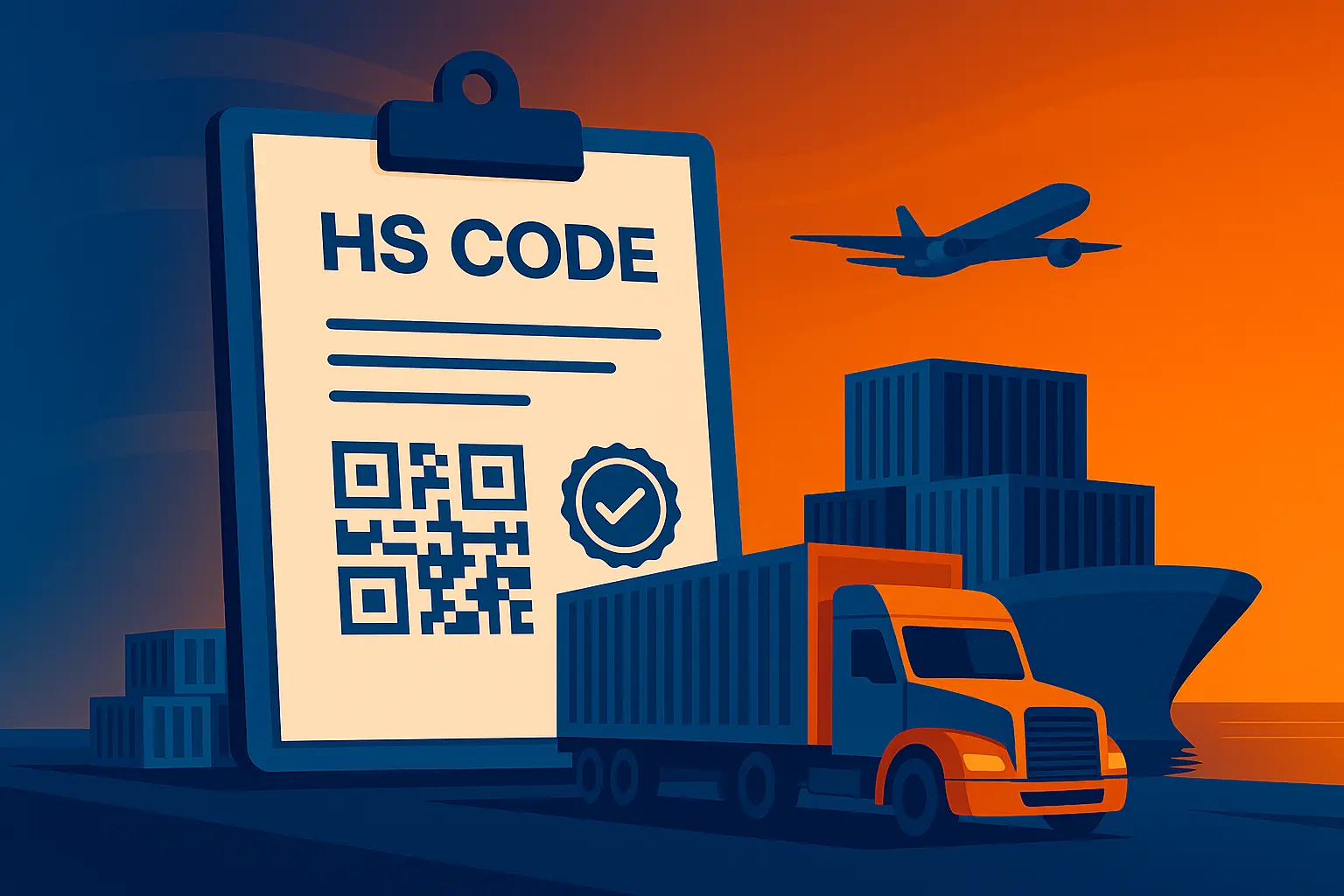Introduction
Incoterms are international rules that define who pays what and when risk passes between seller and buyer. Choosing the right term impacts the final price, lead time, insurance, and customs clearance approach. This guide explains three widely used terms—Delivered Duty Paid, Ex Works, and Free On Board—with clear definitions, risk transfer points, cost allocation, use cases, pros and limits, and practical examples.
First: Quick principles
- Incoterms define risk and cost allocation; they do not replace the sales contract, technical specs, or payment terms.
- Always name the place (e.g., Free On Board Shanghai, Delivered Duty Paid Riyadh); the place changes obligations.
- Risk transfers at a specific point that may differ from title transfer or bank payment.
- Incoterms work with all modes except sea-only terms like Free On Board, Cost and Freight, and Cost Insurance and Freight which are for ocean or inland waterway.
Second: Clear definitions
Ex Works (all modes)
Seller makes goods available at the seller’s premises; the buyer handles loading, inland move, export, international carriage, insurance, import, and local taxes. Risk transfer: when goods are placed at disposal before loading.
Free On Board (sea only)
Seller bears costs and risk until goods are loaded on board at the named port of shipment. After “on board”, risk passes to the buyer who pays ocean freight and beyond. Risk transfer: when the goods cross the ship’s rail at the port of shipment.
Delivered Duty Paid (all modes)
Seller bears all costs and risks up to delivery in the buyer’s country, including import clearance, duties, and local taxes. Risk transfer: at delivery at the named place in the buyer’s country.
Third: Who pays what?
- Origin costs: packing, local loading, pre-carriage to port/airport, export clearance.
- International carriage: ocean/air/road/rail.
- Insurance: as agreed.
- Destination costs: unloading/handling, import clearance, duties/taxes, on-carriage, final delivery.
Typical split: Ex Works = buyer pays almost everything from the first move. Free On Board = seller pays origin and export up to on-board; buyer pays the sea leg and beyond. Delivered Duty Paid = seller pays all the way to the buyer’s door, including duties and taxes.
Fourth: When to choose each term?
Choose Ex Works when
- You have a strong logistics network at origin and want full control on cost and service.
- You plan to bundle shipments or leverage your carrier contracts.
- Your supplier is small or inexperienced in export.
Choose Free On Board when
- Your shipment is by sea and you want the seller to handle export formalities and vessel loading.
- You negotiate your own ocean freight with preferred carriers or forwarders.
- You want a clean price split: seller to vessel, buyer after on-board.
Choose Delivered Duty Paid when
- You need door-to-door simplicity with minimal admin burden.
- You buy small/urgent consignments and prefer to focus on sales.
- The seller has dependable local capability to clear and pay duties in your country.
Fifth: Pros and limits
Ex Works
Pros: simplest seller pricing; maximum buyer control. Limits: heavy burden on buyer, including export steps in some jurisdictions; early risk and inconsistent loading unless agreed.
Free On Board
Pros: fair split for ocean trades; widely used and understood. Limits: sea-only; requires tight coordination on sailing and “on board”.
Delivered Duty Paid
Pros: maximum buyer convenience with door pricing. Limits: heavy burden on seller (tax and customs responsibilities abroad) and pricing sensitivity to duty/tax changes.
Sixth: Risk point vs. title
Incoterms allocate risk, not legal title. The sales contract may keep title with the seller (e.g., under a letter of credit) even if risk passed under the Incoterm.
Seventh: Practical examples
- Gulf buyer of heavy machinery by sea with strong ocean contracts: Free On Board fits—supplier prepares and loads; buyer controls ocean and insurance.
- E-commerce store importing small multi-destination parcels: Delivered Duty Paid simplifies operations—seller clears and delivers.
- Distributor with a global forwarder buying from a small workshop: Ex Works—buyer runs the entire chain for quality and price certainty.
Eighth: Common mistakes to avoid
- Using Ex Works but expecting free truck loading—if loading is needed, use Free Carrier or write it clearly.
- Using Free On Board for air freight—Free On Board is for sea; use Free Carrier/Airport for air.
- Choosing Delivered Duty Paid without seller’s local clearance capability—verify representation and tax ability first.
- Omitting the named place—always specify (e.g., Free On Board Shanghai).
- Ignoring cargo insurance—under Ex Works and Free On Board, the buyer usually arranges it.
Ninth: Quick text comparison
Ex Works: buyer bears cost and risk from the seller’s door. Free On Board: seller until on-board; buyer after. Delivered Duty Paid: seller handles everything to buyer’s door including duties and taxes.
Tenth: How to choose step-by-step
- Select mode: if pure ocean and sizable volume, Free On Board is a strong candidate; for multimodal/air/road, consider Free Carrier/Carriage Paid To/Delivered Duty Paid.
- Assess your logistics capability: no broker or experience? Delivered Duty Paid may fit; with capability, Ex Works or Free On Board gives control and savings.
- Check duty/tax landscape: large variability suggests allocating the burden to the party best placed to manage it.
- Compliance fit: restricted items may make Delivered Duty Paid impractical for a foreign seller.
- Document the named place and a cost matrix showing who pays each leg.
FAQs
Can we change the Incoterm mid-contract?
Yes if both parties agree in writing; it alters price and obligations.
Does Delivered Duty Paid make the seller liable for all customs delays?
Not automatically; the buyer may still need to provide specific permits or documents per the sales contract.
Can I use Free On Board for air freight?
No. Use general multimodal terms such as Free Carrier or Carriage Paid To.
Executive takeaway
Ex Works maximizes buyer control but shifts risk and cost early. Free On Board splits responsibilities logically for ocean freight. Delivered Duty Paid maximizes convenience but burdens the seller and may raise price. Choose based on mode, your operational capability, regulatory complexity, and time sensitivity. Always state the named place and clarify insurance and document duties.
